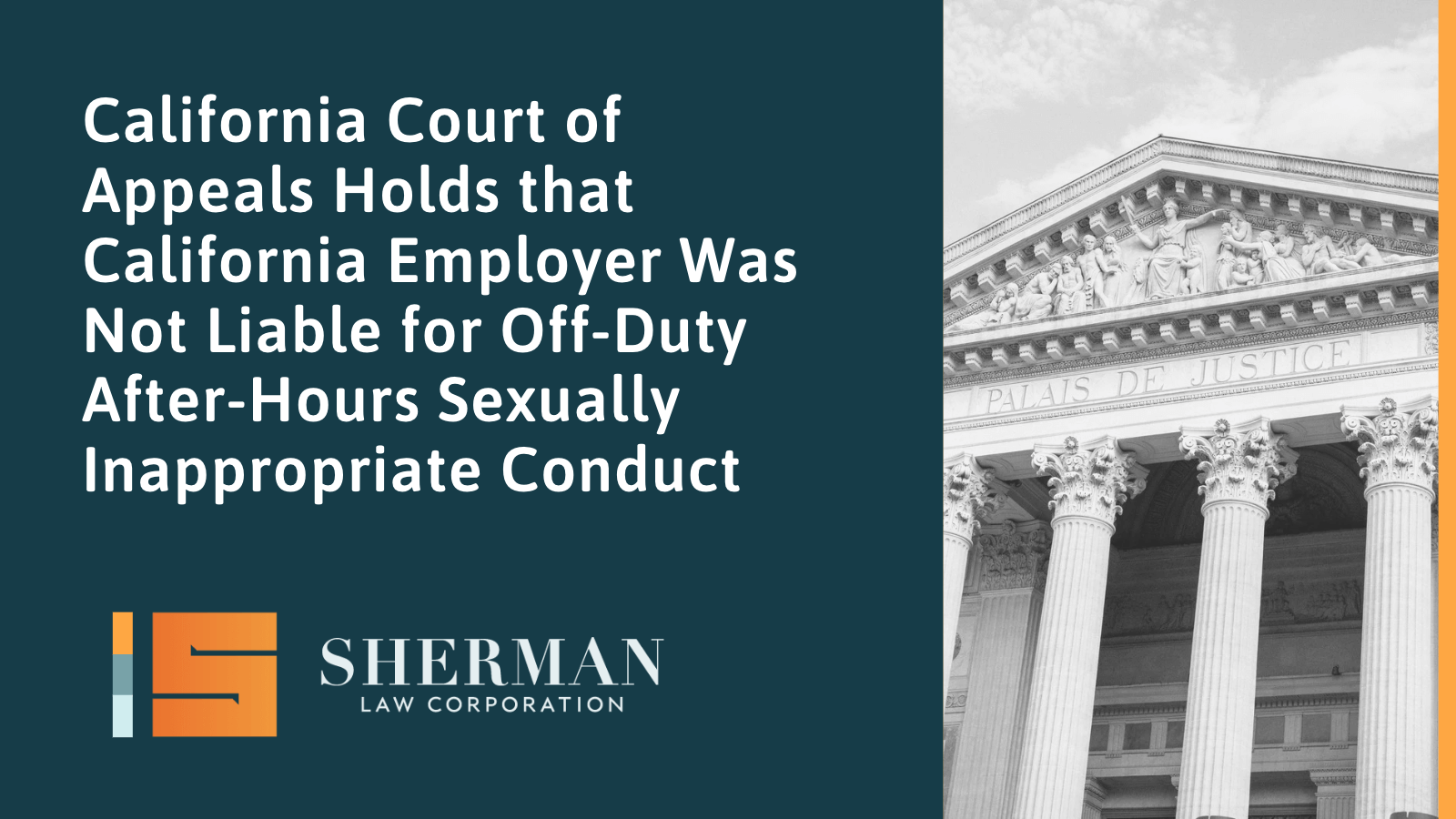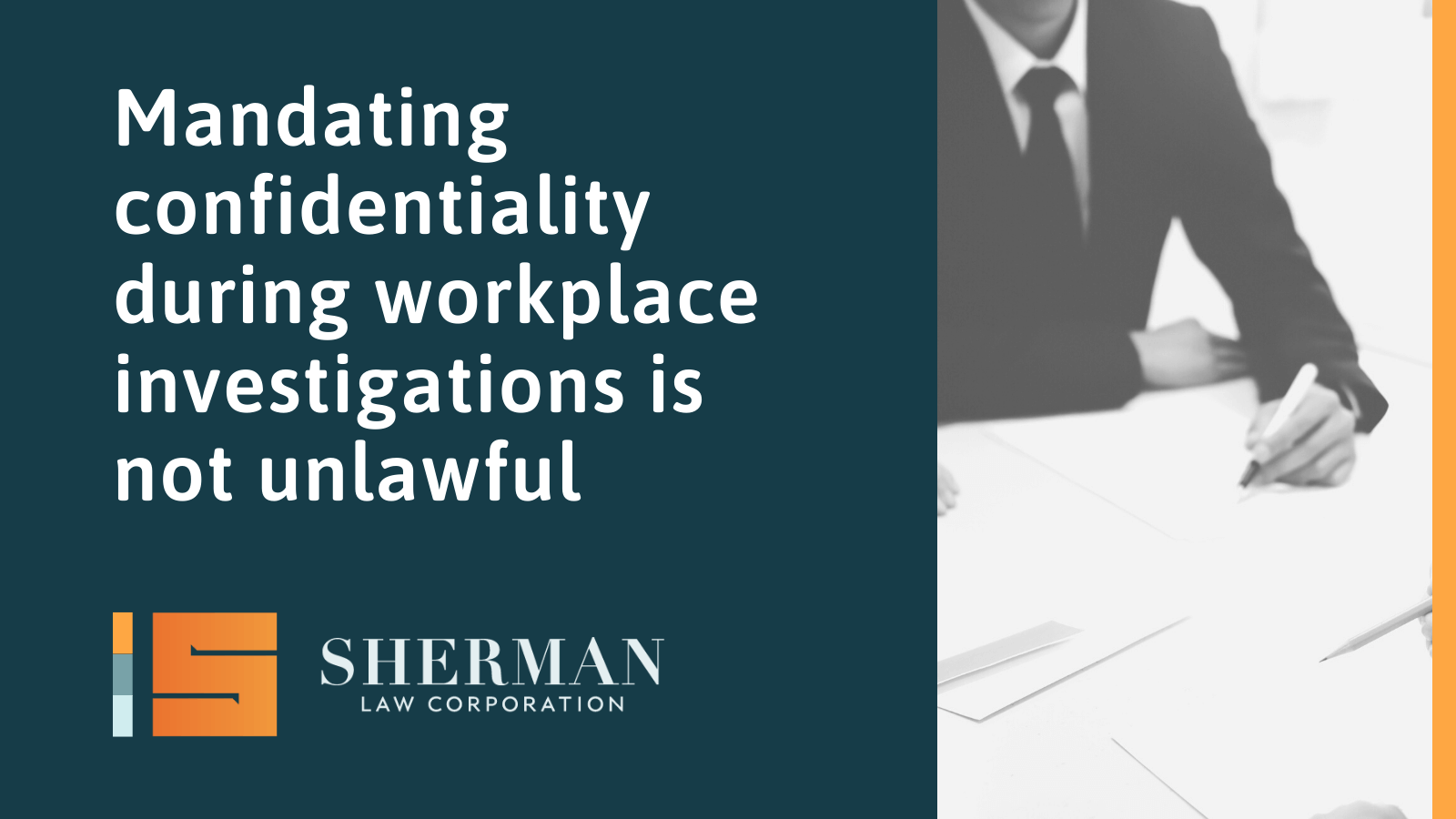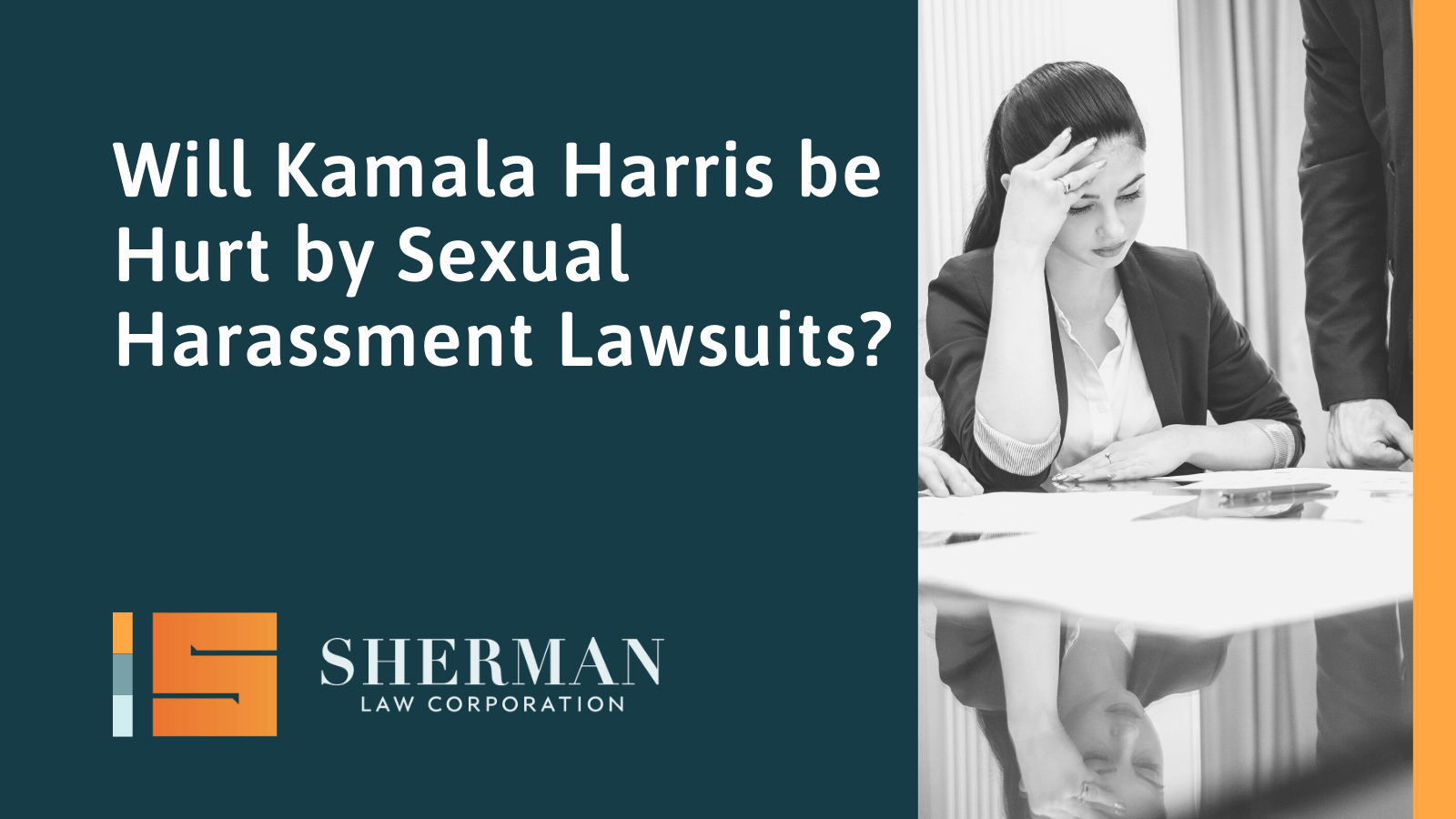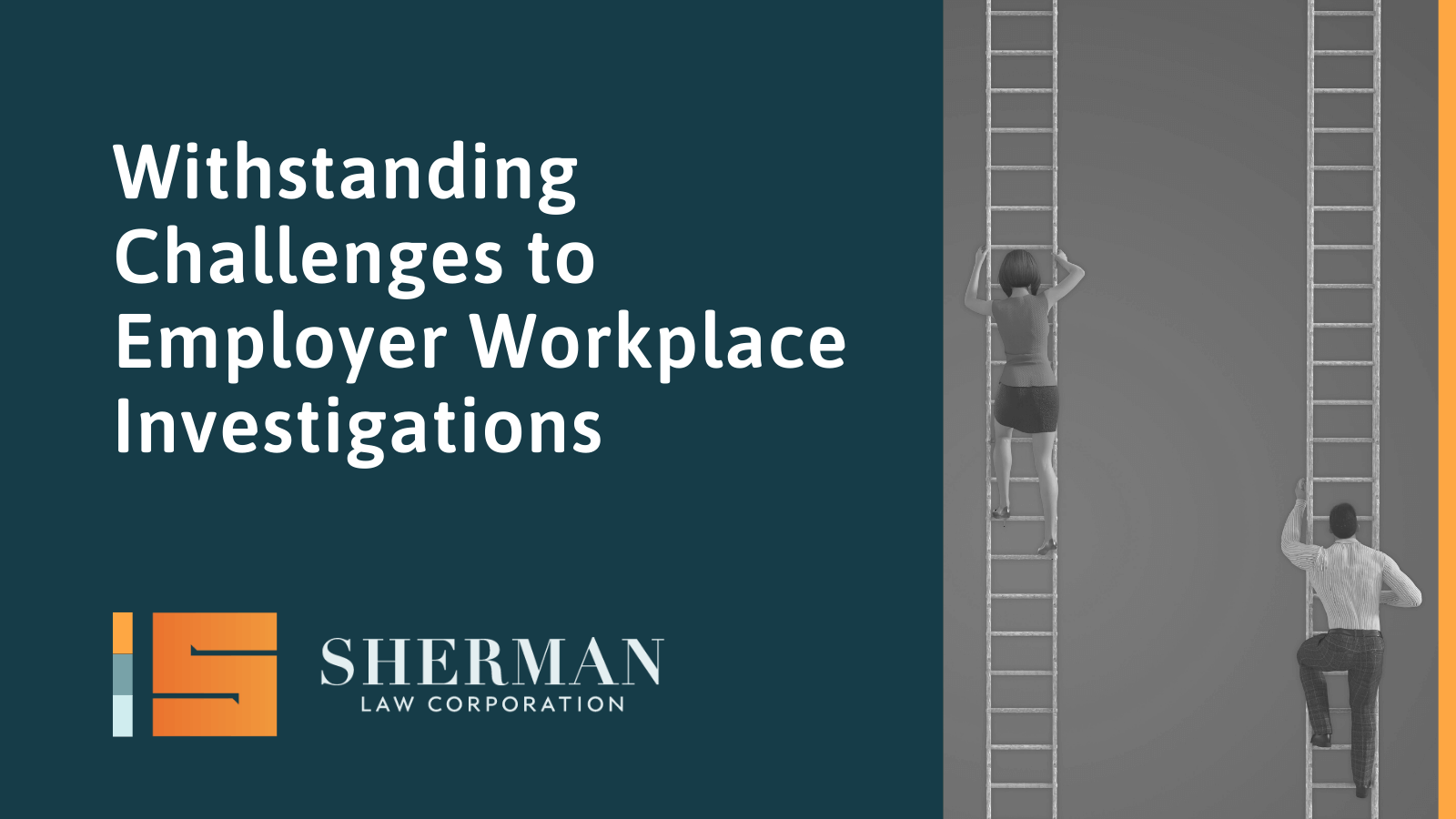
Under California’s Fair Employment and Housing Act (“FEHA”), California-based employers are strictly liable for a supervisor’s harassment, even where the employer is unaware of the supervisor’s alleged bad actions. A recently published Court of Appeal decision lends cover to California employers when the alleged conduct occurs off duty and after hours, although it is unclear if this case is limited to the facts or will become precedent.
From California employment lawyer Lisa Sherman, here’s an overview of several recent decisions and what they mean for California employers going forward.
The Case of Atalla v. Rite Aid Corp
In Atalla v. Rite Aid Corp., 2023 WL 2521909 (Cal. Ct. App. Feb. 24, 2023), the Court of Appeal established limits on the extent to which California-based employers will be held legally responsible for conduct stemming from employees’ personal relationships outside the workplace and after-hours conduct.
Plaintiff Hanin Atalla (“Atalla”), a pharmacist, sued Rite Aid alleging that Erik Lund (“Lund”), a Rite Aid district manager, had sexually harassed her, among other employment-related claims. Atalla’s harassment claim arose from a series of late-night text messages containing a video of Lund engaging in a sexual act and a photo of his genitals. Rite Aid did not dispute that Lund had sent the sexually explicit communications but maintained that it was not liable for harassment based on Lund’s conduct because he was not acting in his capacity as a supervisor at the time. The trial court granted summary judgment to Rite Aid on Atalla’s sexual harassment claim, among others, and Atalla appealed.
The Court of Appeal affirmed summary judgment for Rite Aid because it agreed that the alleged harassment occurred when Lund was not acting in his capacity as a supervisor. In reaching this conclusion, the Court relied on evidence demonstrating a long-standing personal relationship between Atalla and Lund that predated their working relationship. Atalla had testified that her preexisting relationship with Lund “was wholly unconnected to her work” at Rite Aid, and there was evidence establishing that, both before and after Lund and Atalla worked together, they “texted about a range of topics, extensively and frequently, including … concerning family, vacations, food and dining, alcohol and drinking, people and pets, exercise, as well as chit chat about work,” and they “regularly met for coffee and lunch, got together for holiday and birthday dinners, and were acquainted with each other’s spouses.”
As for the text exchange in question, the Court concluded that it was not work-related and, thus, could not form the basis of a sexual harassment claim against Rite Aid. The Court focused on the fact that Lund sent the photo and video while intoxicated at a hotel late in the evening and Atalla received the texts at her home. Although Atalla argued that Lund’s explicit photos followed a discussion of work, Lund’s text asking how Atalla’s workday had gone was characterized as a “common inquiry for a friend.” Accordingly, the Court of Appeal opined that Rite Aid was not strictly liable because Rite Aid demonstrated that the harassment occurred outside of work and that Atalla was a willing participant in the personal friendship that pre-existed Atalla’s employment.
Ultimately, while Atalla provides some protection for employers when employees engage in purely personal conduct that is not connected to work, employers will still face liability for work-related actions by supervisors. Interestingly, this case was dismissed on summary judgment. The unwelcomeness element required to prove sexual harassment is rarely dismissed as a matter of law on a dispositive motion for summary judgment.
What Does This Case Mean for California Employers?
Notably, California employers who knew nothing about off-duty, alleged, and unwelcome sexual conduct by a supervisor will rely on this case when facing similar facts.
However, most situations at work involve employees who did not have a preexisting relationship before employment like the facts here.
Employers will face liability for work-related actions by supervisors which is easy for an employee to claim related to off-duty conduct.
Considerations for California Employers for Abhorrent Off-Duty Conduct by an Employee
In California, there are specific laws that protect an employee’s right to engage in off-duty conduct that is lawful. These laws also provide monetary relief to those employees whose employment is adversely affected by violating them. Not all types of the employee’s off-duty conduct are protected, though.
If an employee’s off-duty conduct is harmful or potentially hurts an employer’s business interests or involves some crime, it can result in a valid basis for terminating employment. Even so, this is often decided on a case-by-case basis, and specific facts need to be considered before making a final decision.
For example, a viral video that showed a Franklin Templeton employee, Amy Cooper, reporting to local law enforcement that an “African American man” was frightening her, alarmed her employer. Yet, all the video showed was Christian Cooper, a bird watcher, asking Amy Cooper to put her dog on a leash per the rules of Central Park. This video resulted in an uproar on many social media platforms, accusing Amy Cooper of lying to the police because of racial discrimination. And even though Amy Cooper’s action had nothing to do with her job duties or work performance, Franklin Templeton quickly terminated her employment, citing their company’s “zero tolerance for racism.”
Indeed, in September 2022, the Southern District of New York dismissed Ms. Cooper’s wrongful termination lawsuit, concluding that she did not prove that her termination was due to race or gender, or that the company had defamed her and intentionally inflicted emotional distress.
Can Employers Lawfully Discipline Decisions Based on Off-Duty Conduct?
One popular misconception that many individuals have is that because the First Amendment protects their free speech, it is illegal for an employer or company to fire an employee based on something they said. The First Amendment, typically, does not apply to private employers. However, some laws that do apply to California’s private employers, include the following:
- California Labor Code section 96(k): This law protects employees who are terminated for “lawful conduct” that occurs during hours away from the employer’s premises and not working. Generally, this law applies to lawful off-duty political pursuits.
- Labor Code Section 1101 bars an employer from adopting, making, or enforcing any regulation that prevents an employee from taking part in politics or becoming a candidate for public office. In addition, it prevents the employer from controlling the political activities of their workers.
- Labor Code Section 1102 bans an employer from influencing or attempting to coerce their employees through the threat of discharge to refrain from following any particular course of political action or activity.
These provisions prevent an employer from directing the political activities of its employees. However, these regulations do not stop employers from limiting political and other non-work-related activities in their workplace. Additionally, employers can also prevent employees from posting content that makes viewers believe that the employee is speaking on behalf of the company. In these situations, an employer can take action against the employee, even if their conduct happens off-duty. This, of course, should be addressed in the employee handbook.
Employee’s Social Media Conduct
According to Article 1, Section 1 of the California Constitution, each citizen has an “inalienable right” to obtain and pursue “privacy.” Section 980 of the Labor Code in addition to Article 1, Section 1 of the California Constitution is meant to protect an employee’s privacy on their personal social media platforms. While also prohibiting employers from asking employees for their log-in information and passwords. Yet, even though these laws provide some sort of privacy protection for employees and their use of social media, it does not mean that an employee’s public social media posts are protected. If an employee begins posting content beyond their private followers, they waive their right to privacy. As a result, they can be disciplined for their posts, especially when these posts are not deemed to be related to their workplace issues, which are often protected by the National Labor Relations Act (NLRB).
What Employers Need to Ask Before Making Any Decisions About Employees’ Off-Duty Conduct
If an employer has an issue with their employee’s off-duty conduct, they need to consider these laws, the effects on the business, and the litigation exposure if the employee sues. Looking into their past conduct and reviewing whether they have consistently applied company protocols should also be considered.
During these cancel culture times that we are experiencing, it should come as no surprise that disciplining off-duty conduct has become incredibly difficult to navigate. Not only does the business have to heavily weigh the legal problems that can result from terminating the employee, but they also have to take into account the potential loss of sales and customers if this issue becomes common knowledge and favors the employee.
Contact California Employment Lawyer Lisa Sherman Today
For additional information or if you wish to seek employment counsel, please contact Lisa Sherman for a free consultation at (323)488-2087 or at Lisa@sherm-law.com.




